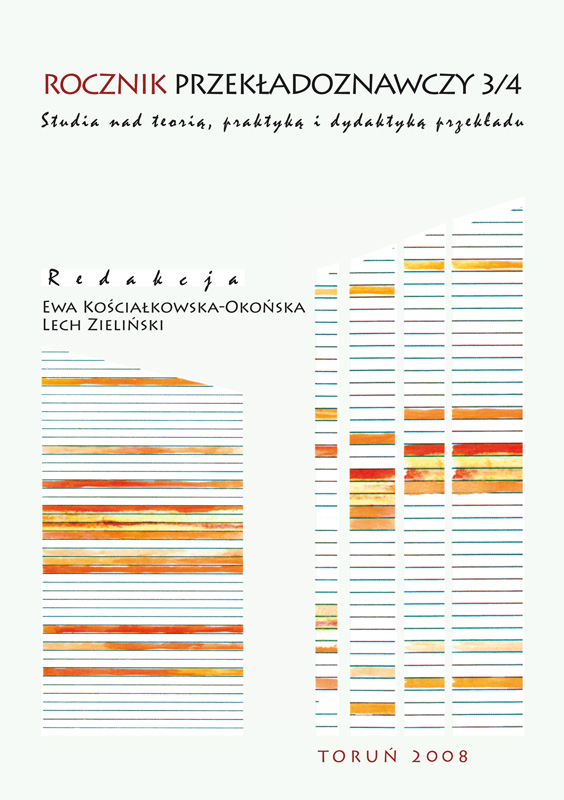Nieprzystawalność, uniwersalizm kulturowy i lokalizacja w tłumaczeniu tekstów prawnych
DOI:
https://doi.org/10.12775/RP.2008.018Słowa kluczowe
przekład prawny, nieprzekładalność, kontekst kulturowy, lokalizacjaAbstrakt
Przedmiotem artykułu jest analiza wybranych tekstów prawnych w językach polskim i angielskim pod kątem nieprzystawalności systemów prawnych w różnych kulturach i wierności naczelnej zasadzie tłumaczenia takich tekstów, jaką jest zachowanie związku treści tłumaczenia z kulturą języka źródłowego. Prowadzi to do stosowania strategii translatorskich służących zachowaniu specyfiki tekstu źródłowego, ale również w pewnym stopniu dostosowaniu przekazu do obowiązującego systemu kulturowego w obrębie obszaru języka docelowego. Przedstawiono przykłady terminów, które w parze językowej język polski – język angielski mają cechy indywidualizmu i uniwersalizmu kulturowego oraz takie, które wymagają lokalizacji.
Bibliografia
Esselink, B., 2000, A Practical Guide to Localization, Amsterdam–Philadelphia.
Kielar, B. Z., Grucza S. (red.), 2003, Języki specjalistyczne 3. Lingwistyczna identyfikacja tekstów specjalistycznych, Warszawa.
Kierzkowska, D., 1998, Selection of English Documents, Warszawa.
Kierzkowska, D., 2005, Kodeks tłumacza przysięgłego z komentarzem, Warszawa.
Olpińska, M., 2003, „Struktura podręcznika ≫Tłumaczenie pisemne tekstów specjalistycznych≪”, [w:] Języki specjalistyczne 3. Lingwistyczna identyfikacja tekstów specjalistycznych, Kielar, B. Z., Grucza, S. (red.), Warszawa, s. 159–169.
Pieńkos, J., 2003, Podstawy przekładoznawstwa. Od teorii do praktyki, Kraków.
Pym, A., 2000, Localization and the Changing Role of Linguistics, http://www. tinet.org/~apym/on-line/locling/locling.html.
Pym, A., 2002, Localization and the Training of Linguistic Mediators for the Third Millennium, http://www.tinet.org./~apym/on-line/beirut.pdf.
Urbańczyk, S. (red.), 1991, Encyklopedia języka polskiego, Wrocław.
Pobrania
Opublikowane
Numer
Dział
Statystyki
Liczba wyświetleń i pobrań: 930
Liczba cytowań: 0



